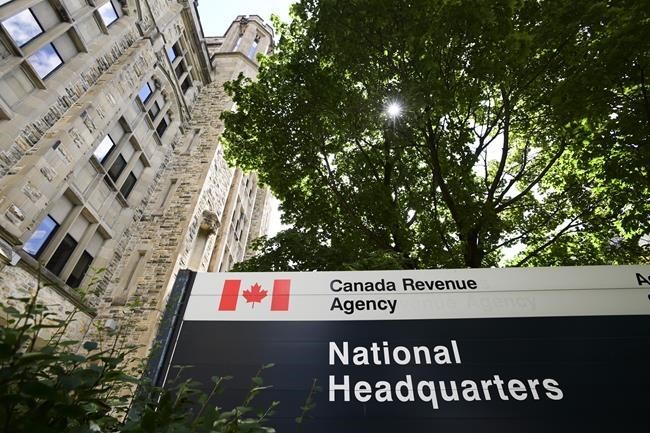The union representing more than 35,000 Canada Revenue Agency (CRA) employees said the agency's recent labour practices complaint against it is hypocritical as strike votes loom ahead of tax season.
"I find it insulting," said Marc Brière, national president of the Union of Taxation Employees (UTE).
On Friday, the Canada Revenue Agency (CRA) filed an unfair labour practices complaint against the Public Service Alliance of Canada – Union of Taxation Employees (PSAC-UTE), claiming it is not bargaining in good faith.
It asked the Federal Public Sector Labour Relations and Employment Board to force the union to return to the bargaining table before being allowed to declare or authorize a strike.
The union declared an impasse in negotiations on Sept. 1, then withdrew from mediation on Dec. 20, the same day it began.
The union said it withdrew from mediation because the Treasury Board had announced a return-to-work order for all employees just a few days before mediation was set to start, which the CRA chose to comply with even as return-to-work was a key bargaining issue.
Brière said the union initially declared a bargaining impasse because the CRA refused to table a wage offer, and said the return-to-work was the final straw for the union and CRA employees.
"Our team was just livid," he said.
The CRA did not respond to a request for comment.
The union said it asked the CRA to withdraw its return-to-work order and discuss telework during mediation, and when the CRA refused, the union chose to withdraw from mediation.
Three days before the labour complaint was filed, the union announced it would be launching strike votes to be conducted from Jan. 31 to April 7, during which time the union and the CRA will also be engaging in Public Interest Commission hearings recommended by the labour board on Jan. 27 and Feb. 20.
When the union left the bargaining table, the CRA said there were more than 200 outstanding bargaining demands, many of which involve what it deems to be significant costs to the CRA and taxpayers. Brière disputed this characterization.
The union’s move toward a strike position would affect the tax filing season, the revenue agency said, adding that it’s disappointed in the union’s actions.
Brière said that's the point. He said based on what he's hearing from CRA employees, he's "extremely confident" the union will receive a strong strike mandate, and will be in a legal position to strike in April.
Unless the employer is prepared to launch expedited negotiations and reach a deal, he expects the CRA to come to a standstill at its busiest time of year (the deadline to file taxes is April 30).
"I’m going to shut it down exactly when it hurts," he said.
"It's very unfortunate. It's not what we want. But we reached a point of no return."
The union, in its release announcing the strike votes, said that wages keeping pace with inflation and a sensible remote work policy are critical in reaching a deal with the CRA. Brière added that working hours are a big sticking point for CRA employees as well.
He said that bargaining between PSAC-UTE and the CRA has been strained for years, marked by delays, and the union had hoped after the CRA's efforts during the pandemic, this round would be different.
"We are really fed up with the way that bargaining has been going on, not just this round, but the last three rounds," said Brière.
"We pulled the plug because ... the system is broken."
This report by The Canadian Press was first published Jan. 16, 2023.
Rosa Saba, The Canadian Press



